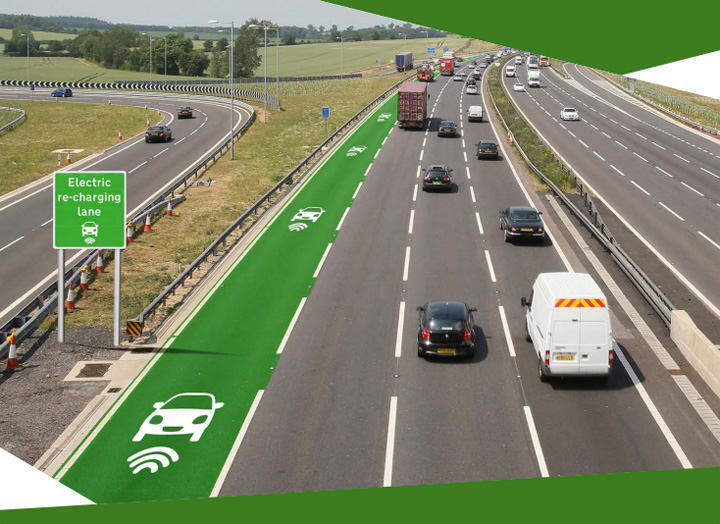TORONTO – One of the problems facing electric car owners is range anxiety – the worry that you won’t have enough of a charge to get to your destination, or the next charging station.

But what if the road you were travelling on could give you a battery boost?
Highways England, the U.K. government body responsible for road infrastructure, has announced it will begin feasible testing of electric “re-charging” lanes, which would provide a charge to vehicles as they drive along them.
READ MORE: B.C. government offers incentives to buy electric cars
“Vehicle technologies are advancing at an ever increasing pace and we’re committed to supporting the growth of ultra-low emissions vehicles on England’s motorways and major A roads,” said Mike Wilson, Highways England’s chief highways engineer, in a press release.
“The off-road trials of wireless power technology will help to create a more sustainable road network for England and open up new opportunities for businesses that transport goods across the country.”
READ MORE: Public chargers for electric cars increase awareness, but not sales
- Gas prices surge in some parts of Canada. What’s causing pain at the pumps?
- ‘She gets to be 10’: Ontario child’s heart donated to girl the same age
- Roll Up To Win? Tim Hortons says $55K boat win email was ‘human error’
- Ontario premier calls cost of gas ‘absolutely disgusting,’ raises price-gouging concerns
The technology would see vehicles equipped with wireless transmitters. Electric cables buried under the surface of the road would generate electromagnetic fields. The energy would then picked up by a coil inside the car’s transmitter and converted into electricity.

Similar technology is already being used in South Korea, where there is a seven-mile stretch of road that charges electric buses as they pass over it.
The U.K. testing won’t be done on public roads yet, however. A test track will be built for the feasibility study that is expected to run for 18 months.




Comments